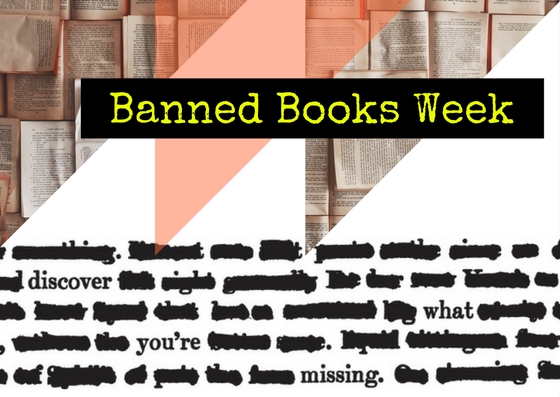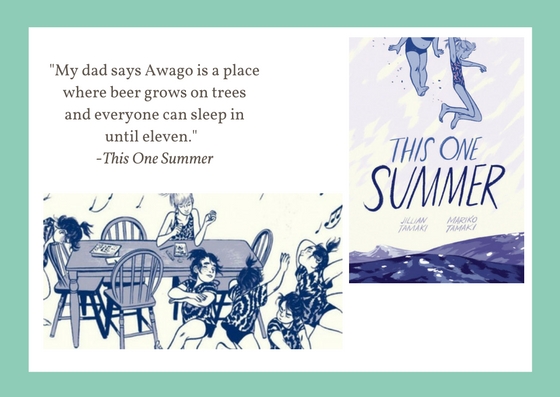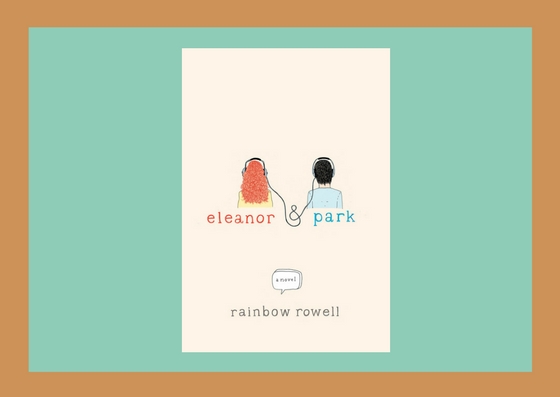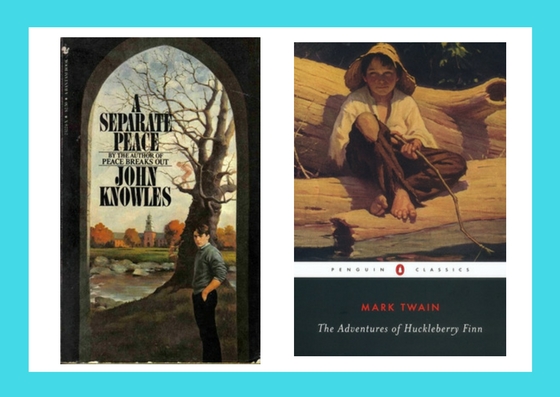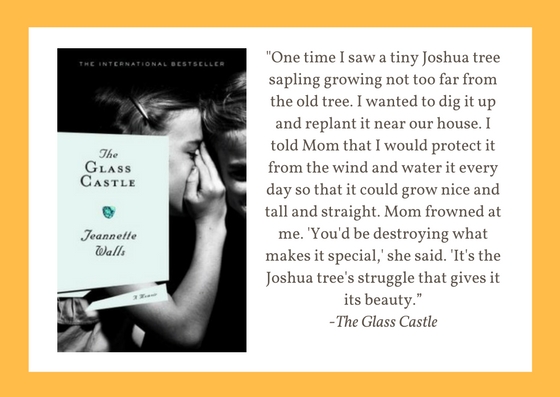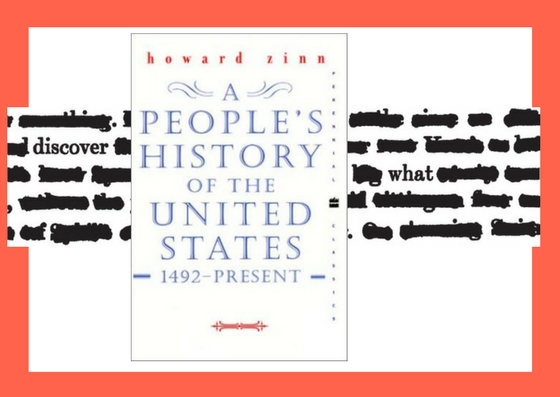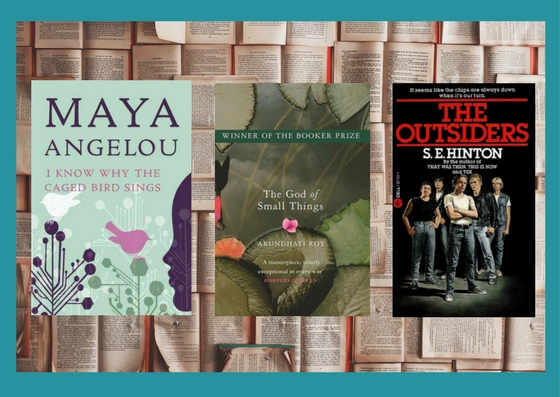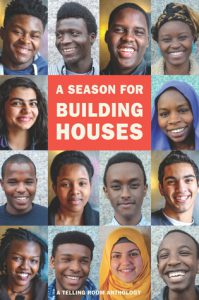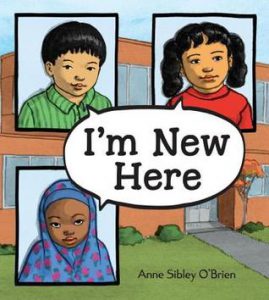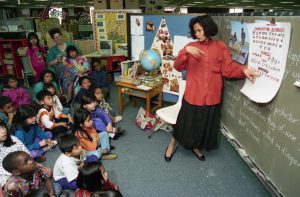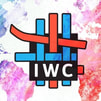Celebrating the Right to Read! September Staff Picks
posted: , by Elizabethtags: Library Collections | Recommended Reads | Adults | Teens | Kids & Families | Seniors
This year Banned Books Week is September 24-30, and we’re celebrating the right to read! For our monthly staff picks post, we took a look at the American Library Association’s new publication “Field Report 2016: Banned and Challenged Books” by Robert P. Doyle. We each chose a title from the report that we were familiar with and that had been publicly challenged in 2016. Here are our personal responses to a few of the books that have recently come under fire, as well as some of the deeper discussions that the challenges or that the books themselves have inspired for us.
Carrie’s Pick
How I wish I had this book when I was a kid! Robie H. Harris’ title says it all, It’s Perfectly Normal, and this is what children need to hear over, and over, and over again. The message that what you experience during adolescence and puberty is normal, we all basically go through the same feelings and changes –and sometimes we don’t and that is ok too—comes through loud and clear. What I love about this book is the updating it undergoes and the kindness and understanding it conveys. With new information on LGBTQ youth and transgender issues, It’s Perfectly Normal maintains its spot as my go-to book for all children (and adults for that matter) looking for honest, factual, and lovingly presented information on our bodies and growing up. Bird and Bee guide you through the ups and downs of growing up and remind you that It’s Perfectly Normal!
___________________________________________________
Harper’s Pick
Christine Baldacchino’s picture book Morris Micklewhite and the Tangerine Dress is an endearing story of a little boy who knows what he likes and doesn’t let gender norms define his play. His favorite outfit in the dress-up center at school is the tangerine dress. He likes it because the color reminds him of tigers and his mother’s hair, and he likes the sounds it makes when he walks. When the other children start bullying Morris and tell him he can’t wear the tangerine dress because he is a boy, Morris gets so anxious that he stays home sick from school. After spending a few days at home being himself with his supportive mother, Morris remembers why he likes the dress, and that it doesn’t matter what the other kids think. Morris returns to school and wears the tangerine dress, making sure the other kids know he is confident and comfortable in himself. When they realize Morris is still just as fun and interesting in a dress as not, the kids forget about what he is wearing and start just having fun.
Megan’s Pick
This One Summer follows a family at their usual vacation destination, Awago Beach. This is not a perfect summer adventure—our hero and main character Rose is feeling the pressure of growing up and hurts people around her constantly. She fights with her friend Windy, talks about older girls behind their backs, and yells at her depressed mother. Though it stings, I felt most connected during those rougher parts that channel how I felt as a young teen leaving a familiar childhood world behind.
As a counterweight, the book’s quieter moments give the characters room for vulnerability and let the art shine. The book is skillfully illustrated throughout by Jillian Tamaki. It’s one of the most gorgeous graphic novels I’ve read (the printing is all blue!) and worth picking up for the art alone.
I believe it’s important to read books that describe all the messiness of being human. The characters of This One Summer may not be perfect (or even likeable sometimes) but their humanity is what drew me in.
Kelley’s Pick
I was a newly minted Teen Librarian when I first read Eleanor & Park by Rainbow Rowell. At the time, I was loving ALL teen fiction, and E&P charmed me with its underdog protagonists, 80s mix tape nostalgia (THE SMITHS), and the tragedy created for these teenagers by external forces they can’t control. For many, this is a new teen classic with a laundry list of accolades and prestigious starred reviews (Kirkus, School Library Journal, Booklist, Publishers Weekly). It has appeared on best-lists and is recommended by teachers and librarians.
Eleanor & Park has been formally challenged for being sexually explicit or even “pornographic,” for its depiction of bullying, and for excessive profanity, and these challenges are easy to dismiss as typical by those of us who read and promote books for Teens. This is my response to the most common reasons why Eleanor & Park is challenged by parents, community members, and others.
- We read to explore the world, to not only find characters like ourselves but those that are having experiences we have not or will never have. This is especially important for young people as they are forging their own identifies.
- Teens, maybe not your teen but maybe your teen, are experimenting with romantic relationships and sexuality at some level; wouldn’t it be positive for them to read books about other teens who are realistically experiencing the same emotions and choices, especially if those characters are treating each other with respect?
- Likewise, bullying and abuse are happening to, by or around your teen. It was happening in the 80s, and it was happening now. Wouldn’t it be helpful for teens to see how realistic characters their age experience these traumas as well?
- Teens are intelligent and able to read critically, and most young people are not going to rob a bank or jump off a cliff because a character in a book does.
- Lastly, please read the book and don’t simply skim it in order to count the number of times profanity is used, #context.
Now, there is a different set of recurring complaints about this book which require discussion. Those who have issue with it are often readers and writers, so they do not challenge anyone’s right to read Eleanor & Park. But they’re vocal about why they think the book is problematic, arguing that it is riddled with cultural stereotypes, harmful fetishism of its Korean characters, and even racism. It has been pointed out that many (recurring) mistakes could have been prevented by proper research, by a careful editor, or by interviewing several Korean-Americans to learn about their real experiences. And there are claims (with evidence from the text) that these steps were not taken with Eleanor & Park. See here, and here.
From the excellent literary blog Rich in Color:
“To unquestioningly accept any-and-every form of representation means dismissing and devaluing the fantastic stuff already out there. Representation of marginalized groups in YA lit shouldn’t simply be a matter of putting a check mark next to the diversity box. It shouldn’t involve stereotypes, exotification or cultural appropriation. It can and should be done right.”
I am a big fan of Rainbow Rowell’s writing (I have gifted Fangirl to every younger cousin going off to college for the first time). That said, I was a little ashamed of myself for not reading her most celebrated novel with a more critical eye. Eleanor & Park is worth reading, and worth discussing, but not because it is profane or inappropriate for teens to read.
Eileen’s Pick
A book that I loved, loved, loved when, paradoxically, I read it under duress in high school has a history of challenges to its suitability for kids the age I was when I read it and loved, loved, loved it. Apparently, A Separate Peace, John Knowles’s 1959 novel, has ruffled the odd feather.
Last weekend I read it again to see what I thought close to 50 years after my first revelatory foray. While it didn’t thrill me like it did when I was wearing a plaid uniform skirt and regulation navy blazer to school every day, it still resonated.
The milieu is Devon School, a New Hampshire prep school for boys. The focus is a small band of students, including Phineas and Gene, Class of 1943, a fraught time if you were staring down your 18th birthday in a world at war.
The confusion inherent in figuring out yourself, your companions, and the rest of the world isn’t particular to a time or place. Pendulating between trusting your best friend more than you trust yourself and wondering just how foolishly naïve you are if you do, alas, is not peculiar to prep school boys in the 1940s. Neither are the conflicted feelings of being best friends with someone who infuriates you, stymies you, fills you with self-doubt while he—how can this be? —bestows the gift of knowing you are special. Wrestling with the fallout of an act committed in the thick of this confusion never loses relevance, nor do the questions it spawns: Where does happenstance start and stop? How do we go on when we are bereft, and always, always and still, confused.
Gene observes, “I felt that I was not, never had been and never would be a living part of this overpoweringly solid and deeply meaningful world around me.” If there ever was a high school sophomore who didn’t feel this way at least three times a day, I can promise you this: that sophomore was not me.
Looking for substance in the chaos of puzzling out my place in the world, in A Separate Peace I found comrades in the struggle. I found tragedy to satisfy my adolescent craving for drama. And heck, you can’t learn too young that tidy resolutions aren’t the stuff of life. Life is shadowed with ambiguity and regret as well as brightened by the occasional chance to begin again. Time and distance can refine what we see if we choose to take a second look, whether it is through Gene’s eyes as he revisits Devon School and his past or through my own as I traversed Knowles’s book again with my young self as companion.
As for ruffled feathers and challenges and adolescents, I have this to say: I was encouraged to read whatever came my way, and was allowed the space to decide for myself what I thought about it all. I offer belated gratitude to my parents for their trust; and to my teachers for assigning books I didn’t know I wanted to read.
I don’t think we can give kids better than that.
Books are amazing.
___________________________________________________
Beth’s Pick
I usually make a point to read a banned book or two during September—one for me and one to my five-year-old son. I started earlier this year and did a second time around with The Adventures of Huckleberry Finn. I read it in high school through required reading.
That was over 20 years ago, so this second time around was like the first! It is amazing to me how much has changed since the story was written. A teen that I know was reading this for summer reading and was really struggling with the dialect. Language has changed so much that this is common when someone is attempting to read older texts in present day.
Elijah Wood of Lord of the Rings fame narrates an amazing audio version of this title. His performance, as always, is phenomenal. Listening to spoken words clarifies things when reading lines such as “Sometimes you gwyne to git hurt, en sometimes you gwyne to git sick; but every time you’s gwyne to git well agin.” I highly recommend listening along as you read so that you can deduce meaning through inflection and intonation.
Brandie’s Pick
I think timing is everything when you pick up a book. I tried reading The Glass Castle by Jeanette Walls years ago and couldn’t get into it. Then my daughter read it this summer and insisted that I give it another try. This time, I loved it and couldn’t put it down. It was a hard read because of the neglect and abuse the children suffered. It also reads like a work of fiction, and you have to remind yourself that this is a true story full of dark times. Walls describes her hardscrabble upbringing and captures her complex and conflicting thoughts about her parents and childhood eloquently. Her descriptions are vivid and beautifully captured, and I found the way she told her own story so much better than the scenes in the recent Hollywood version of this book.
The Glass Castle is banned from many schools due to the scenes of sexual assault, profanity, and situations dealing with alcoholism and abuse. However, many challenges have been met with opposition, including student petitions, and proponents of the book say that the book is a real look at childhood neglect, poverty, and overcoming adversity.
Elizabeth’s Pick
Howard Zinn’s A People’s History of the United States was challenged in 2016 in a New Jersey school for being a “biased account” of history. An earlier version of the book was required reading in my own high school in 1997. Our history teacher, Joan Davis, used it as part of a range of other historical texts and primary sources in a biased attempt to hone our youthful critical thinking skills. I remember Zinn’s text as one jumping-off point for interrogating historical narratives as well as thoughtfully examining any source of our intake of information: lessons from our teachers, other books, the media, our families and our friends. (If all histories are flawed, we reasoned, then A People’s History was too).
Mostly, the content of A People’s History and our discussions of it and other texts affirmed a number of sensible questions to keep at hand. Is history always written by the powerful? Who has the power in any given situation? Where does that power come from? How is that power sustained? Who is controlling the story? Whose story is missing? Why are facts important? Why should we keep asking questions? Why are “the people” important? Can the people influence social change? If these questions sound dated, they feel important as ever. Twenty years on I’m glad when, at school or in the library, students do have the chance to encounter a range of history books—and a chance to decide for themselves what questions they want to ask.
___________________________________________________
Other books from “Field Report 2016: Banned and Challenged Books” include: James Baldwin’s Go Tell It On the Mountain, Francesco D’Adama’s Iqbal, S.E. Hinton’s The Outsiders, Maya Angelou’s I Know Why the Caged Bird Sings, Arundhati Roy’s The God of Small Things, Toni Morrison’s The Bluest Eye, Alice Sebold’s The Lovely Bones, Dave Egger’s A Heartbreaking Work of Staggering Genius, and more.
And, for banned books made into movies, don’t miss our free Banned Book Film Series on Thursday evenings at 6:30 in the Rines Auditorium in October.
As always, thanks for reading.

